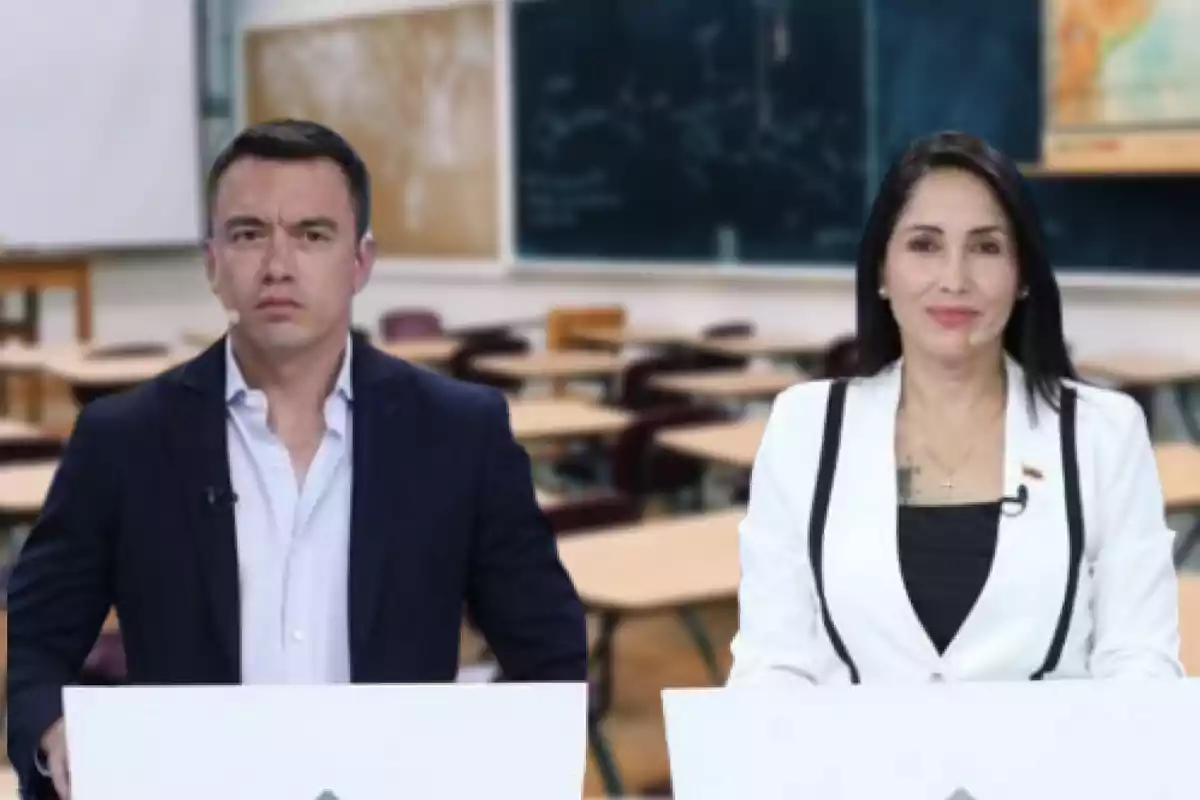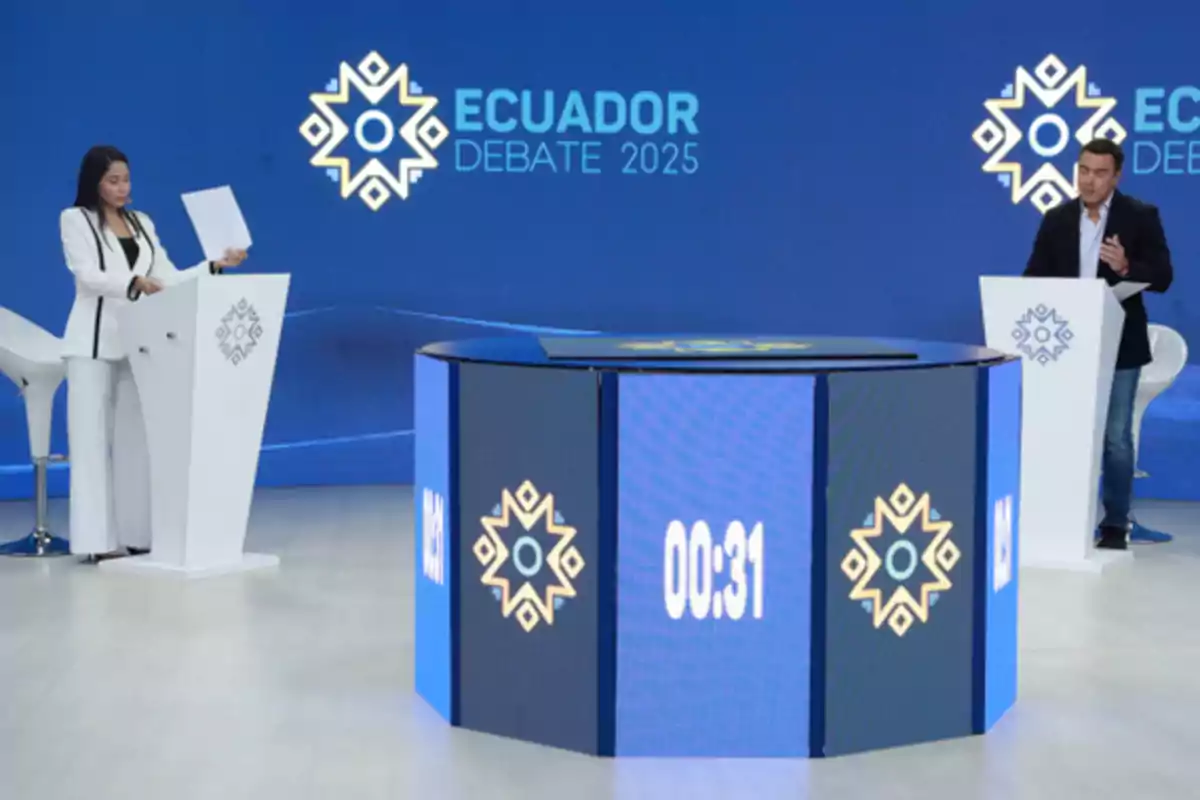
The debate highlighted gaps in Luisa González's educational proposals
The candidate didn't offer concrete solutions and repeated questionable figures during the education segment
During the first thematic axis of the 2025 presidential debate, focused on education, Luisa González showed significant weaknesses in her proposal. Her intervention was based on generic accusations against the current government, without detailing how she would implement her promises.
The candidate claimed that more than 72,000 children left the educational system and that about 120,000 did not enroll, without presenting verifiable sources. These figures were questioned by President Daniel Noboa, who recalled that his administration has reopened schools, awarded more than 100,000 scholarships, and executed permanent appointments for teachers.
When asked directly if she would reinstate the controversial drug table—an instrument that during Correa's administration facilitated the impunity of micro-trafficking in school environments—González replied evasively before finally saying "no." Her response was also accompanied by personal attacks and references to issues unrelated to the educational axis.
"Lies have short legs. We removed the mafias from school education and prisons and gave it to the people who work hard," stated President Noboa.
Additionally, González accused the current government of not fulfilling universal access to university, but omitted that the "Youth in Action" scholarship plan has benefited 880,000 people. She also avoided explaining how she would finance her proposal for free school breakfast, supplies, and uniforms without compromising the national budget.

A contrast between the past and the future
President Daniel Noboa presented a more concrete vision, linked to current data and policies already in place. He spoke of strengthening technical education, expanding access to online university, and offering 100,000 English scholarships, aiming for modern job placement. He also reiterated that no member of his family is involved in businesses related to school feeding, dismantling his opponent's attacks.
In contrast, González repeated past narratives, blaming an "absent State" without acknowledging that her own movement led the country for more than a decade. Even in the face of current homicide figures in areas like Esmeraldas, she avoided proposing an educational policy articulated with security.
The education axis highlighted that Luisa González's proposal lacks clarity, planning, and technical support. Meanwhile, Noboa defended his management with facts and proposals with financial and operational viability.
With a decisive presidential election in April, the citizenry will have to choose between an offer that points to the past and another that projects concrete solutions toward the future.
More posts: